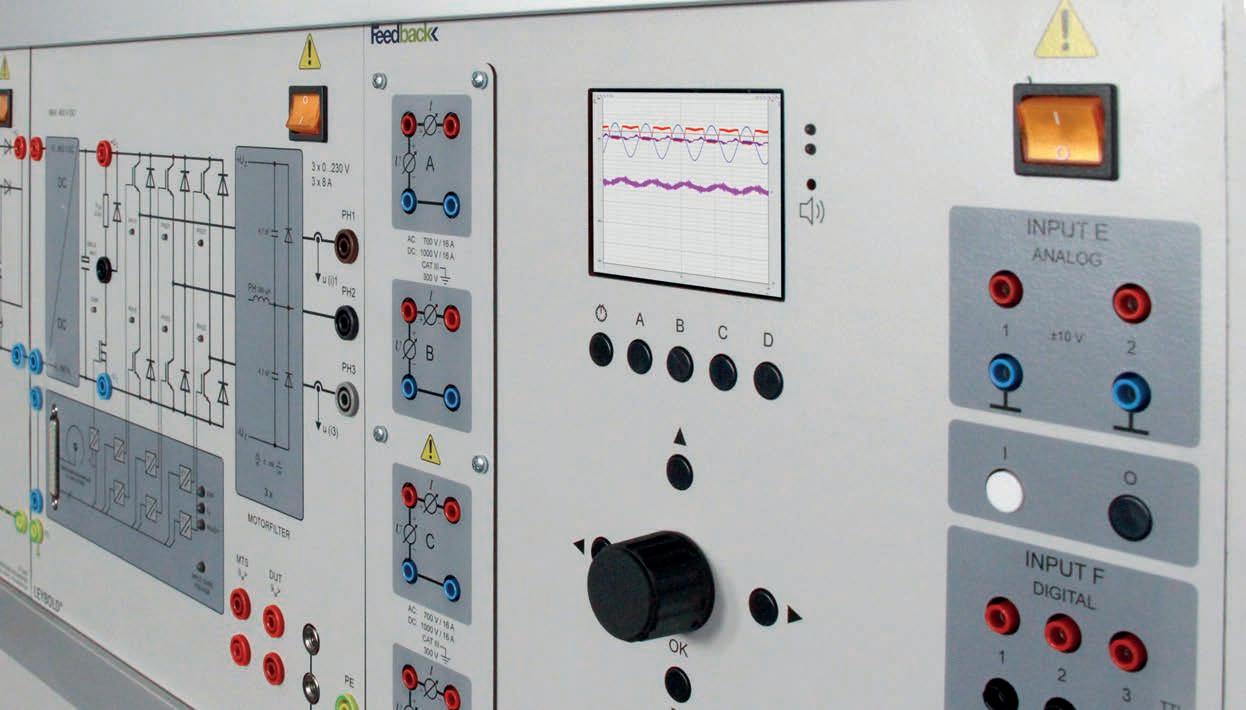
1 minute read
EDUCATIONAL SYSTEM DRIVES FOR MACHINES
Converter Controller Cassy
Possible Applications
DRIVE FOR DC MACHINE:
Influence of pulse width and frequency on the armature voltage
Speed control using armature voltage
DRIVE FOR ASYNCHRONOUS MACHINE:
Parametrisation of a frequency converter with V/F control
Control optimisation of a cascade control with PID controllers
DRIVE FOR SYNCHRONOUS MACHINES:
Difference between the commutation methods
Setup:
Permanently activated as BLDC drive
Externally activated with incremental commutation
Concise Information On Power Electronics In The Drive Technology
LD DIDACTIC has developed a compact didactical control unit with a power element to meet the necessary requirements of the increasing importance of electrical machines controlled via power electronics in the technical and educational sector. This unit is used to introduce the basic principles of modern technology.
In conjunction with electrical machines, the control unit (Converter Control CASSY) controls both drive systems for DC machines, asynchronous machines and synchronous machines.
In DC operating mode (H-bridge), variable DC voltages can be generated using pulse width modulation. This forms the basis of the DC drive for four quadrant operating mode. It is also possible to provide an overview of the setup of a cascade control for angle-oriented speed and position control.
Frequency and voltage-variable three-phase voltages can be generated as frequency converters for 3-phase asynchronous machines. A V/F function is used to analyse the modulation methods and frequencies.
Various commutators, such as block, sinus and incremental commutators, can be used to operate 3-phase synchronous machines and examine the differences between the commutator processes. The generated rotational movement and torque can be used to set up a permanently activated synchronous machine as a BLDC drive and a separately excited synchronous machine as a servo drive.
The Converter Controller CASSY finally comprises an integrated measuring unit. It is easy to measure the voltage between the phases of a frequency converter using this measuring device. By connecting the integrated, digital filter, it is possible to measure pulse width modulation variables.
Drives Of The Dc Machine
Fig. 1 Pulse/width modulation
Fig. 2 Dynamic speed control with sinusoidal reference variable
Fig. 3 Section from Figure 2
Fig. 4 Armature current over 4 quadrants
Drives Of The Asynchronous Machine
Fig.
Current vector of a three-phase asynchronous machine without a filter
Fig. 2 Voltage vector of a three-phase asynchronous machine without a filter
Fig. 3 Torque characteristic curve during load simulation of a fan
Fig. 4 V/F characteristic curve during load simulation of a fan
Drives Of The Synchronous Machine
Fig. 1 Current vector of a block commutation
Fig. 2 Voltage vector of a block commutation
Fig. 3 Voltage and current of a block commutated, permanently activated synchronous machine










